by Jacks McNamara
There are things you survive that you don’t know you can survive. And then you survive them. Again.
I have this old picture in a frame. The picture was cut out of National Geographic in 1999. It is a photograph of the Rio Grande winding through canyons at sunrise. It is from Big Bend National Park, in Texas. High desert on the Mexican border. I was supposed to go there when I was 19; it was one of the dry and beautiful places I fantasized about on americansouthwest.net when it wouldn’t stop raining in Rhode Island, and I was so depressed that my buddy and I could only make ourselves laugh when we planned vacations to the desert or talked about creating star charts for each other. Not mapping constellations – we’re talking grade school: you get a little green star sticker if you brush your teeth today, a shiny red star if you change your clothes, and a gold star if you actually leave the house. Except we were too depressed to ever buy the stickers.
I did not end up in the American southwest that winter. I ended up fairly convinced the world was ending. Suicidal, in the psych ward. In art therapy, they gave me a little wooden frame, some glue and tempera paint, and a pile of magazines. Because this was the psych ward, where you cannot have scissors or blades, I meticulously creased and hand tore two dozen bits of image to collage around the outside of the frame. Then I placed the portrait of Big Bend in the center. People were not to be trusted; rivers and mountains were still worthy of dreams.
This little object has lived on my shelves and tabletops in California and England, made appearances in New York and Oregon. I have carried it around the world with me as a symbol of my resilience, and a reminder of what I have survived. Don’t forget how deep your bottom is. 12 years later, the pictures are faded, dusty, and peeling, but mainly intact. 12 years later, I finally made it to West Texas to see the sun rise at Big Bend.
***
A couple months before I made my pilgrimage, I was sick in bed for 3 weeks. The unraveling into illness began the morning after a disturbing phone call where an ex offered profoundly unsettling insights into the incest in my past. Like most of the people I know who struggle with recurrent sickness, child sexual abuse is an early part of my story. And so it goes: contact memories too terrible to digest, wake up ill. Except the sequence of events is never that clear to me at the time, and so I fight. And fight. Chest cold turns into walking pneumonia, followed by catching a stomach flu, followed by multiple day migraines. In the middle of it all, a familiar shaming depression began to paralyze me. In the middle of my disorientation, I didn’t notice an e-mail inviting me to be the featured artist in a show called “Navigating Disability.” When the curator called, I was shocked, but pleased. Immobile, and having cancelled everything in my life for weeks, I started to re-examine the relevance of that word “disability,” which I had resisted for so many years, as a framework for understanding my trajectories through health and collapse. I took an inventory in my journal: all the events I had missed in the last year because of migraines, chest colds, flashbacks, mania, anxiety, or depression. The riots after the Oscar Grant verdict. Ethan Watters speaking about the globalization of American ideas of mental illness. Film screenings. Collective meetings. Performances where I was supposed to perform. Performances I wanted to watch. Classes. Meals. Trainings. Work work and more work. And the list went on.
I started to wonder what would happen if I stopped fighting so hard to pretend to myself that I was just like everyone else. What if I followed the example of some queer radical friends who’d embraced the crip community and found people who actually understood what they faced in navigating the world? Would I stop being so devastated every time I had another flare-up? Would I accept myself more honestly, and maybe start to know something different about peace?
***
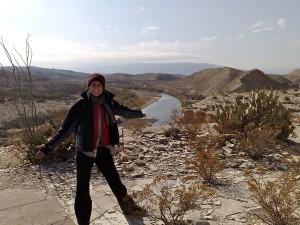 On my first morning in Big Bend I woke up early to watch the desert sunrise. Except the fog had come in overnight, and my mind was racing. Thick low clouds blotted out the distances. Mountaintops misted over like the East Bay hills? Condensation dripping off the tent? Yes, apparently this happens on a rare winter night in West Texas. So I ducked into the car to avoid merciless wind and rolled down the window facing east. The sunrise appeared as two streaks of pink in the fog, blowing slowly over the imaginary mountains like a lost piece of trash or a feather boa. I found myself thinking of my mother, her love of pink, her history of chronic illness and failing health. Her injuries and illnesses punctuated my childhood: I can still remember ages of my life based on what new health emergency she was suffering. When I was 3, her back went out while she bent over to gather dirty clothes from my laundry basket. At 4, she disappeared to have skin cancer removed from her face. A bulging disk in her back when I was 6, ruptured disk on my 8th birthday – she enlisted a neighbor to run my party because she was flat out in bed. At 9, riding roller coasters by myself at Disney World because my mom was stuck in a hotel room unable to walk. Diabetes diagnosed a few months later. Then the epic drinking, the high blood pressure, the weight loss diets, neuropathy, a cane, ulcers, organ failures, the thirteen simultaneous prescriptions. 2 weeks after I got my driver’s license, she gave hers up, because she couldn’t feel the pedals in the car anymore and she wasn’t willing to get hand controls or use a wheelchair in public. She’d rather stay home and hide. Disability seemed to mean you dropped out and disappeared, didn’t belong, felt sorry for yourself, collapsed. Finding my mother face-down on the living room floor because she’d fallen and just couldn’t see the point of getting up anymore. Finding cases of cheap wine secretly delivered to our house and emptied in isolation after my father and I had refused to bring any more home. When I was 26, I watched her suffocate to death while I held her hand. The gangrene in her feet had spread to her blood. Though her lungs were failing, her last request for a cigarette. And then she was gone.
On my first morning in Big Bend I woke up early to watch the desert sunrise. Except the fog had come in overnight, and my mind was racing. Thick low clouds blotted out the distances. Mountaintops misted over like the East Bay hills? Condensation dripping off the tent? Yes, apparently this happens on a rare winter night in West Texas. So I ducked into the car to avoid merciless wind and rolled down the window facing east. The sunrise appeared as two streaks of pink in the fog, blowing slowly over the imaginary mountains like a lost piece of trash or a feather boa. I found myself thinking of my mother, her love of pink, her history of chronic illness and failing health. Her injuries and illnesses punctuated my childhood: I can still remember ages of my life based on what new health emergency she was suffering. When I was 3, her back went out while she bent over to gather dirty clothes from my laundry basket. At 4, she disappeared to have skin cancer removed from her face. A bulging disk in her back when I was 6, ruptured disk on my 8th birthday – she enlisted a neighbor to run my party because she was flat out in bed. At 9, riding roller coasters by myself at Disney World because my mom was stuck in a hotel room unable to walk. Diabetes diagnosed a few months later. Then the epic drinking, the high blood pressure, the weight loss diets, neuropathy, a cane, ulcers, organ failures, the thirteen simultaneous prescriptions. 2 weeks after I got my driver’s license, she gave hers up, because she couldn’t feel the pedals in the car anymore and she wasn’t willing to get hand controls or use a wheelchair in public. She’d rather stay home and hide. Disability seemed to mean you dropped out and disappeared, didn’t belong, felt sorry for yourself, collapsed. Finding my mother face-down on the living room floor because she’d fallen and just couldn’t see the point of getting up anymore. Finding cases of cheap wine secretly delivered to our house and emptied in isolation after my father and I had refused to bring any more home. When I was 26, I watched her suffocate to death while I held her hand. The gangrene in her feet had spread to her blood. Though her lungs were failing, her last request for a cigarette. And then she was gone.
***
In Big Bend, I made time for windows of grief. My schedule changed around the planets and the patterns of heat. Catch the sunset, quickly cook dinner, get in the sleeping bag before the temperature drops to 25 degrees. Watch the moon come out. Pray. Drift off to cinematic dreams and wake at dawn. Find a vista facing east. Watch the sun rise again. Spend the morning getting warm in its light. Write. Walk. Fill my eyes with horizon. In the afternoon, make space to remember all the lost things. Notice the fading colors of day. Start composing new songs.
***
Surviving this many years of my life has required creation and belief that things will get better, over and over again. Part of me has been terrified to claim the label of disability because I do not want to admit defeat.
Part of me has resisted claiming it because sometimes I am so well. Because my “disabilities” are usually invisible. Because I come from a lot of privilege – white privilege and class privilege – and have been given so many opportunities to “succeed” in a capitalist, ablest, white supremacist society. Because I refuse to identify as a fundamentally broken person – I am a queer abuse survivor in a homophobic, violent world. Because I still think my fragilities are something I’m supposed to be able to overcome. If I do everything right, if I try hard enough, if I just find the right tools, the right teachers, the right community, the right practices, the right partners, the right climate, the right friends, the right herbs, the right acupuncturist, the right perspective, the right book, I’ll finally be all recovered, right? I’ll be one of those success stories, right? I won’t need special accommodations, flexible work, more time off, more rest, and access to western meds then. I won’t need to be vigilant about sleep, super careful about intoxicants and foods, and really communicative around sex and intimacy, right? And I won’t need to be spending half my income on therapy and health care? right?
***
On my second day in Big Bend, I went on a medicinal plant walk with a satisfyingly geeky park ranger. A fierce wind cleared the clouds out of the sky while four strangers shivered and traded stories. We learned that creosote makes a good anti-microbial wash. Leatherstem can be rubbed on irritated gums. Honey mesquite pods can be ground up to make flour. Prickly pear cactus can reduce blood sugar. I thought of my mother, the long chain of futile medicines she took that never adequately regulated her blood sugar. The ranger asked if anyone here actively used natural remedies rather than relying primarily on Western medicine, as if that would be a terribly novel thing to do. I raised my hand, talked a little about how I got interested in nutrition, acupuncture, herbs and other therapies because they actually worked better for me. Because I tried so many Western meds first and they failed to get to the root of anything. He was shocked. His knowledge came from books, not experience. I almost got up on my soapbox to talk about chronic illness and trauma-related conditions, and how inadequate western medicine is for addressing so many of them, but I did not have the energy. The mountains were calling while I was able to climb.
***
Part of what baffles me about claiming an identity as disabled is the inconsistency of my health – when I am well, I am strong and sharp, and hope it will last forever. I can ride a bike 40 miles, cook you dinner, build a website, write a book. When I am not well, even the simplest tasks become impossible.
For me a good month is something like this: I only get 1 or 2 migraines. If it’s a really good month, they only last for an afternoon or a day. My bad knee stays mostly quiet, and I can keep riding my bike, maybe even do yoga. I only slip into debilitating depression and/or anxiety for 3 or 4 days. I am able to work part-time for a few weeks in a row without having to take time off. I make something that resembles enough money to pay my bills and buy some new underwear, though not enough to buy health insurance or save. I sleep fairly reliably. I keep commitments with friends and lovers, show up for meetings, put some time into creative projects, hike and camp. I return most emails and pay rent. This is a solid month.
A shaky month is full of unexpected interruptions. In a shaky month, I get migraines 2 or 3 times a week, sometimes for 3 days at a time. I can’t sleep, or I can’t get out of bed. My mind runs so fast I can’t sit still, lose interest in food, and start losing weight that I need to keep on. Or it gets so confused and disoriented that I can’t make basic decisions, can’t face leaving the house, have to start canceling everything. Flashbacks wake me up in the middle of the night, or paralyze me in the middle of the afternoon. Panic and anxiety trap me in my room. I start digging through the mini-pharmacy that lives under my bed – the tinctures, the amino acids, the painkillers and anti-psychotics, the homeopathic remedies and inhalers, the many things I keep on hand just in case. Cause just in case always comes. Maybe the allergies and asthma erupt and I can’t breathe fully for days or weeks. Maybe one of those lung infections takes hold and I’m done, winded after walking up stairs, feeling like a small child is sitting on my chest all day. Or maybe the knee goes out and I’m that person in the corner of the room with their leg up on a chair, bag of frozen peas resting on a dishtowel on a swollen joint, while everyone else is moving around. Maybe I miss a little work, or maybe I miss it all. For months. Emails and phone calls don’t get returned for weeks. Everything seems to fall apart. I feel full of shame and powerless, old voices telling me how lazy I am, how I’m letting myself go again. I hide. I get overwhelmed. Everything gets cancelled. I try not to give up.
And then the storm breaks and I’m the most functional person you’ve ever met. And I start rushing to catch up…
***
When I was in Big Bend, time slowed down. No datebook, no computers, no emails. All of a sudden, I could fall asleep easily every night. I could spend two hours soaking in hot springs on the river’s edge and not worry about the next appointment. The questions about crazy started to recede as I softened and became kinder to myself. I could feel the sanity and sacredness of the earth getting under my skin and changing my rhythms. Often, I am pretty convinced that if I did not live a culture operating on capitalism’s clock, I would not even be wondering about disability as a framework for my experiences. Who decided that we are supposed to be functional from 9-5 every weekday? Why should my performance be the same in December as in June? Why don’t we take siestas when it’s hot in the summer, or take time off to retreat and turn inward in the winter? Why don’t we have space to grieve when we need to grieve, space to travel through darkness when it is time to travel through darkness? Why must we always feel a pressure to shut pain down and show up anyway? And why is so damn hard to make a living if you are an artist who runs on spells of exuberance and phases of dormancy, the waxing and waning of creation and withdrawal, of moon and blood?
***
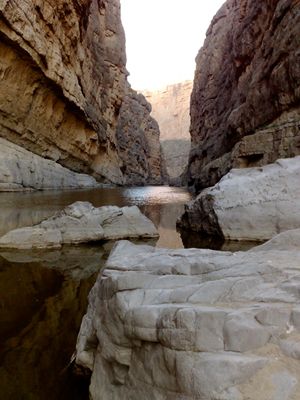 I wonder about the peace on the other side of accepting what disability could mean to me, if I join the legions of radical people who are redefining disability and asking for the oppressive structures of our society to change so there is space for all of us to come exactly as we are. I wonder about navigating that space between acknowledging my challenges while not assigning myself to the role of sick, doomed, or victim. Part of me is terrified of being an outsider, terrified of being sentenced to struggle. This part just wants to assimilate, be seen as normal, functional, traditionally gendered, traditionally able, ready not only to compete but to win. This part wants to belong, even if it means belonging to an exploitative system. The other parts want to acknowledge our differences and multiplicity: our body/mind with our huge variations in ability; our need for flexibility, rest, and care; our need for divergent expressions of gender, health, and productive “work.” These parts are much more interested in neurodiversity than conformity, celebrating and supporting divers-ability rather than getting back to some mythical place of being always conventionally able. These parts want to find solidarity and community around our challenges, rather than remaining invisible – and alone.
I wonder about the peace on the other side of accepting what disability could mean to me, if I join the legions of radical people who are redefining disability and asking for the oppressive structures of our society to change so there is space for all of us to come exactly as we are. I wonder about navigating that space between acknowledging my challenges while not assigning myself to the role of sick, doomed, or victim. Part of me is terrified of being an outsider, terrified of being sentenced to struggle. This part just wants to assimilate, be seen as normal, functional, traditionally gendered, traditionally able, ready not only to compete but to win. This part wants to belong, even if it means belonging to an exploitative system. The other parts want to acknowledge our differences and multiplicity: our body/mind with our huge variations in ability; our need for flexibility, rest, and care; our need for divergent expressions of gender, health, and productive “work.” These parts are much more interested in neurodiversity than conformity, celebrating and supporting divers-ability rather than getting back to some mythical place of being always conventionally able. These parts want to find solidarity and community around our challenges, rather than remaining invisible – and alone.
***
Getting to Big Bend by myself in the middle of January was not a simple task. The logistics trail involved a plane ticket earned on 3 years of accumulating credit card miles, several research trips to the Santa Fe public library once I got to New Mexico, couch surfing with a housemate’s cousin in Albuquerque, taking a greyhound to El Paso on just the right day to get the cheap weekend rental car, walking alone at 11pm through downtown to the one open hostel, and navigating 300 miles of west Texas roads with a stock of enough food to survive 4 days in the desert. It is part of my shape to be good at going up into my head and figuring things out alone. It’s much harder to stay in intimate daily connection with other people. Neglect, abuse, and alcoholic families can force the emergence of some pretty capable organizers – when you have to start making your own meals at the age of 6 and knowing how to avoid or take care of your dangerous mom when you’re 10, you get good fast at working out all the details, or you don’t make it. At this point in my life, all the head-crunching competency is a very mixed blessing – when I’m able, I can get a superhero amount of tasks done, but unchecked these tendencies lead directly to insomnia, migraines, chest colds, isolation, and burned-out despair. I’m proud of myself and exhausted. Trying to allow others to share the journey is so appealing, and so hard to do.
One of the blessings in my last year has been studying somatics and trauma with Staci Haines and a team of teachers from Generative Somatics. Through a variety of body-based exercises, we learn a tremendous amount about how our systems are shaped by trauma, oppression, and the rest of our life experiences – and then we learn new practices that give us more choice. Rather than talking about post-traumatic stress disorder, Staci talks about post-traumatic stress intelligence: if you’re alive, you have been successful at surviving and connecting. Your shape has gotten you through. Survivors are not characterized by pathology; we are characterized by resilience. But too often, we are still so lonely. Our shapes may have worked, but they are usually a little frozen in the past now, treating a safer present reality as a constant threat, keeping us from trusting the people we want to love, enacting old behaviors over and over again. We are always practicing something; if we don’t start to practice something new, transformation is never going to come.
***
I wonder how to incorporate an understanding of the crippling consequences of trauma with a profound belief in healing. I wonder how disability and transformation can be part of the same paradigm. I wonder how to blend a model of trauma and resilience with the reality of inherited sensitivities, wildly altered states of consciousness, and chronic conditions that may never resolve. I wonder how to understand the interface between trauma-informed models of care and the tools and disasters of psychiatry. After having been told over and over by western psychiatrists that I have a mood disorder, a severe and persistent mental illness, or a broken brain, I have resisted claiming psychiatric labels and the version of lifelong disability and dependence on medications that they entail. I am also deeply wary of the political implications of believing in psychiatry. I am one of those people who has studied the history of political dissidents incarcerated in mental institutions to get them out of radical organizing, women institutionalized because they protested their marriages or wanted to vote, brown people given more severe psychiatric diagnoses and disabling drugs than white people, slaves diagnosed as mentally ill because they dared to run away. I do not believe in this system and I do not sanction its abuses of power. I do not want to apply its language to my body, my experience. I do not want to frame myself as one of the “chronically mentally ill.”
But I cannot pretend that once I found a more politically liberating framework within which to place my story that the experiences of extreme distress melted away. I handle the experiences better – the ship does not sink entirely, just gets leaky and requires mending, being anchored for a while to recover. I enlist other people to help. We’re pretty good at bailing the water out, handling tools, making blueprints, swimming to shore, building a fire to dry off. We’ve got a lot of skills, and a lot more community. But the peace inside eludes me. I think I am still waiting to conquer something that operates in a paradigm that has nothing to do with conquest. Some part of me still believes that if I’m a crip, I gotta be a supercrip, and if I’m going to talk about my dangerous gifts, then I better learn how to overcome and win. These notions of victory and competition are not mine – they belong to the oppressors – and I do not want to apply them to my own body. How can I be in solidarity with this body/mind? How can we be in solidarity with each other, with all our differences and needs for care?
***
On my last morning in Big Bend I rose early and made my way to Santa Elena Canyon, where walls of stone rise 1500 feet from the banks of the river. I walked out onto the gravel riverbed and turned east. The sun split the sky open, replacing pink and gray with a gold so brilliant it was nearly painful. Open, open, open. It is all beginning again. Wings in my chest. Triumph unfolding like the flower of something incredibly simple. You have survived. You are still here. The big bend of the river winds out towards the distance. It is more beautiful than the photographs, full of a presence you cannot reduce to two dimensions. Walk deep into the canyon, sit by the shore, watch the small ripples, pray. Fill yourself up with something sane and old. You are still connected to all of this. The spirit of the world has not abandoned you. Even in the times of great sadness, something held you and did not let you fall.
Later I drove back to El Paso, listening to podcasts of dharma talks, thinking about how to bring the illumination home. The familiar sadness crept under my skin as I contemplated leaving the wild and returning to a city crowded with people. Uncannily, the speaker in the dharma talk coming out of the radio started describing her experiences trying to reintegrate into American society after 3 years spent doing peace work in Colombia. Voice quivering, she recalled a quote – every bodhisattva has a broken heart. It is the bodhisattva’s job to return, she insisted, and try to save all beings, even though they cannot be saved. To fall in love again, even though love will break our hearts. This is what we do. We belong to the world. I found myself musing, again, about how it is not so much how high you get up on that mountain, or how connected you feel deep in that canyon– it is about how you come down, and how you come home. For once, I have a home to return to. A body to inhabit and people to love. More words to write, and as always, so many open questions.
 Jacks McNamara is a genderqueer visual artist, poet, songwriter, educator, and mental health activist based out of Oakland, California. In 2002 they co-founded The Icarus Project, an international support network and alternative media project for people struggling with the dangerous gifts commonly labelled as “mental illness.” Jacks is the co-author of the book Navigating the Space Between Brilliance and Madness, and has shown art, facilitated workshops, and performed poetry across the US and Europe. Their life and work is the subject of the poetic documentary Crooked Beauty. Find out more at redwingedjacksbird.net.
Jacks McNamara is a genderqueer visual artist, poet, songwriter, educator, and mental health activist based out of Oakland, California. In 2002 they co-founded The Icarus Project, an international support network and alternative media project for people struggling with the dangerous gifts commonly labelled as “mental illness.” Jacks is the co-author of the book Navigating the Space Between Brilliance and Madness, and has shown art, facilitated workshops, and performed poetry across the US and Europe. Their life and work is the subject of the poetic documentary Crooked Beauty. Find out more at redwingedjacksbird.net.







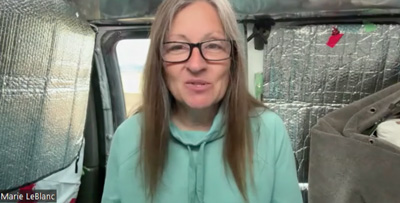
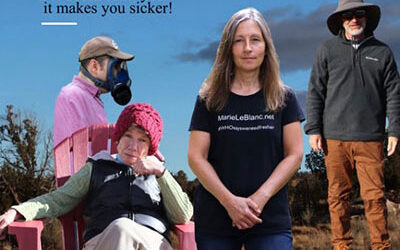
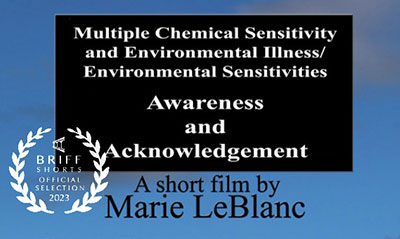
This piece is so lovely. your writing style is so free, free, free and makes me happy and sharing your thoughts and ideas, especially: do we always have to be functioning all the time and in the same ways
Such a meaningful expressive work: Absolutely lovely! Write again.
Dear Jacks,
Your writing touched my broken heart, as you penned, “Voice quivering, she recalled a quote – every bodhisattva has a broken heart. It is the bodhisattva’s job to return, she insisted, and try to save all beings, even though they cannot be saved. To fall in love again, even though love will break our hearts. This is what we do. We belong to the world…”
Over and over again it breaks, I think it’s not possible to break and mend again. Then you write, I come and read and I believe I could mend again, too.
Thank you.
Oh my goodness! Impressive article dude! Thank you so much, However I am having difficulties with your RSS.
I don’t understand the reason why I cannot join it. Is there anybody having the same RSS problems? Anyone who knows the answer can you kindly respond? Thanx!!